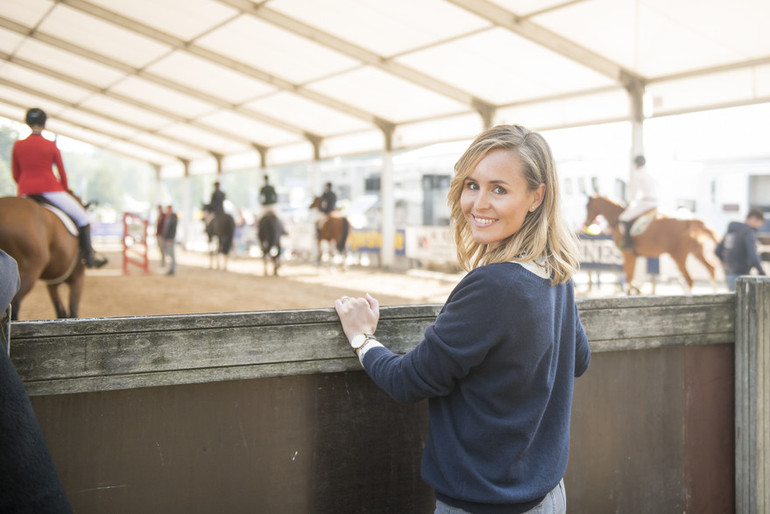Annette Paterakis - The Equestrian Mental Coach
With a background in the showjumping sport and 10 years of experience as a mental coach, Annette is specialized in helping equestrians create a confident, consistent and powerful life in and outside the ring.
“The athletes I work with have everything they need to succeed, I help them find the missing link to translate their potential into powerful results.”
Annette is the author of Keep Calm & Enjoy The Ride and will be releasing her second book later this year.
In the series 'The Equestrian Mental Coach', Annette will be sharing her knowledge with World of Showjumping's readers.
For more information, please visit: www.annettepaterakis.com.
Having spoken with elite riders such as McLain Ward, Jeroen Dubbeldam and Laura Kraut I can attest that even at the highest level, riders get nervous. I know many of you reading this get nervous sometimes. This is why I often get asked how to combat those nerves and instead arrive at the ingate calm, collected and confident.
First of all, we need to see nervousness for what it is; a physical and/or mental response to our minds’ interpretation of an event. When we arrive in the warm-up or course walk for our biggest class yet for example, we might get worried thoughts, overthink, see images of what could go wrong, etc. Reactions of the body might be, shortening of breath, dry mouth, butterfly or sick feeling in stomach, shaky legs, etc. These responses in itself are not good or bad. A common misconception is that you can’t ride well when you are nervous. However, many of you and many of my clients, including the top in sports have performed well even with these physical or mental responses. In other words, you can ride well, even when feeling nervous.
The trouble arrives when we get distracted by these nerves and we believe the stories in our head about how it will all go wrong now that we are feeling the jitters. Of course, your body tensing up and worried, rushed thoughts are definitely not helpful, however, it’s not necessary to completely get rid of them either. Rather, we want to learn how to deal with them. Here are a few steps to practise on a daily basis, not just on show days to train the brain and body to stay focused on the task at hand.
1. Get present
It’s important to make a distinction between what’s helpful for you to do well, and what’s crucial. Being present and completely focused on the horse, taking one jump at a time, is one of the few things that is crucial. Therefore, the more you practice being present during day-to-day activities, the better it will get in the ring. The easiest way to get present, is to feel and focus on your body in this moment. Take a moment right now to feel your feet on the floor (or in the stirrups) for example. Notice when thinking takes over and redirect your awareness to just feeling.
2. Breathe
Our breath is another point of focus that can be helpful to focus on in order to get present. In addition, when we slow the breath down and allow it to flow deep into our abdomen, we help balance our central nervous system, allowing our brain and body to relax and feel safe. Practice deep, abdominal breathing on a daily basis to reap consistent rewards at the shows. Visit my website for 2 free breathing exercises.
3. Step into trust
Another “crucial” element to doing well is to step out of fear (that’s where those nerves come from) and into trust. This is obviously easier said than done, but the key is to train this habit as often as you can during the week, not just when in the show ring. Catch yourself reacting (or thinking) from fear, whether it’s you not trusting yourself, other people or the situation. Once you recognise what’s going on allow yourself to get out of your head. Stop analysing or over thinking and use steps 1 and 2 to get present again. Then choose to step into trust and, regardless of how you are feeling, nervous or not, focus on what needs to be done in that moment.
4. Connect with your horse
Lastly, remember that the most important thing for an equestrian is to connect with the horse. Use the steps above to prepare yourself. Once in the saddle, all you need to do is feel the horse underneath you, connect and enjoy the ride!









